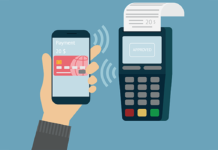If you live and work in a big city, you’re often compelled to listen to fast cars with loud engines rev up from gear one to gear two. The driver inevitably has to stop after around 20 meters for the next traffic light, making many people wonder: why oh why did this gentle person buy such a loud, fast car when it can barely be driven but can always be heard? In much the same way, fully kitted out accounting software is simply not necessary for every business.
Many types of accounting software have similar features, so how does one know which to choose? Today we’re going to discuss those particular points of difference that make accounting software that much more effective for small businesses.
Ease of Access/Use
Small businesses often have few people covering multiple roles. The size of the business dictates that you probably won’t need an accounting software that helps manage mergers or assists in the preparation of complex consolidated balance sheets. Instead, helping an accountant (who might also be covering purchasing) to complete tasks as quickly and accurately as possible is key.
Having an intuitive software that streamlines accounting processes for a stretched worker can be a real game changer. Intuit (the clue is in the name) are right up there with the best in terms of ease of use for their QuickBooks Online software. Navigation between functions is easy, and the dashboard gives an instant oversight on what’s been going on. Income, overdue and paid invoices, plus expenses, profits and losses are all there to see as soon as you log in.
Cost
Cloud accounting has revolutionised the way companies, especially small, pay for accounting solutions. Software used to be locked in the time of its release date, occasionally updated with features if the company really cared about customer service. Software producers knew their next big paycheck would come with their next big release. This encouraged the development of new and the neglect of old. Cloud accounting means the platform never changes; instead, updates are rolled out and improvements are constantly made. It’s a bit like Trigger’s broom if Trigger’s broom could perform double entry.
The main draw of cloud accounting for small businesses is the cost is monthly. You’ll pay a subscription and in return you’ll receive a state-of-the-art version of an accounting software. QuickBooks Online Plus is currently priced at £15.00 a month for their advanced level small business package. Xero’s Premium package is priced at £27.50. The FreshBooks Plus website based software sits at £25.00. All crossover on some features as well as having their own unique offerings.
Mobile
OK, so this could fall under ease of access/use, but we’ve decided to give it its own spot. Having a genuinely useful mobile version can make accounting work easy and instantaneous. Solutions like Kashoo have been built around the principle of mobile access, making it a great solution for a one-man-band business that involves being out and about. One Up started life out as a mobile based accounting solution – One Up has a pretty comprehensive pricing plan making it a good option for single users right up to an unlimited amount of users.
Interested in learning more about accounting software? Check out the other articles in our Accounting Software series.


















